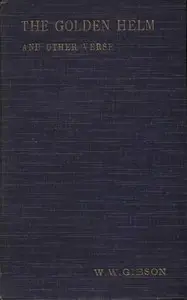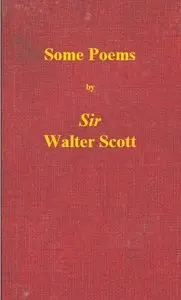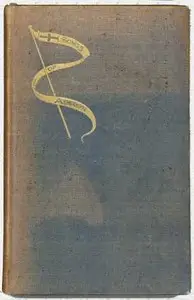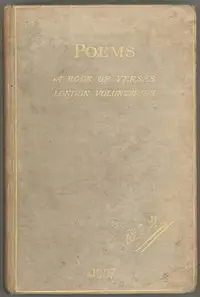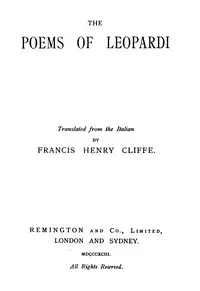"The Song of the Sword, and Other Verses" by William Ernest Henley is a poetry collection that offers readers a glimpse into themes of bravery, destiny, and what it means to be human. Published in the late 1800s, the poems illustrate the difficult parts of life, including war, while exploring the link between existence and mortality. A key symbol, the sword, shows honor and the battles one faces. The poems feature both nature's beauty and humanity's resilience. Notably, the poem "The Song of the Sword" grants the sword its own voice, describing its role in battles and the merging of destiny with courage. The poet uses striking pictures created with words and a flow that connects to readers, encouraging thought about the deeper meanings within the poems. The collection shows pride in British identity, reflecting personal strength and humankind's common experience.

The Song of the Sword, and Other Verses
By William Ernest Henley
Listen to the tales of courage, fate, and the human spirit as told through vivid verses that echo with the clash of steel and the quiet strength of humanity.
Genres
Released
2008-01-18
Formats
epub
mobi
epub (images)
epub3 (images)
mobi (images)
txt
Free Download
Summary
About the AuthorWilliam Ernest Henley was an English poet, writer, critic and editor. Though he wrote several books of poetry, Henley is remembered most often for his 1875 poem "Invictus". A fixture in London literary circles, the one-legged Henley was an inspiration for Robert Louis Stevenson's character Long John Silver, while his young daughter Margaret Henley inspired J. M. Barrie's choice of the name Wendy for the heroine of his play Peter Pan (1904).
William Ernest Henley was an English poet, writer, critic and editor. Though he wrote several books of poetry, Henley is remembered most often for his 1875 poem "Invictus". A fixture in London literary circles, the one-legged Henley was an inspiration for Robert Louis Stevenson's character Long John Silver, while his young daughter Margaret Henley inspired J. M. Barrie's choice of the name Wendy for the heroine of his play Peter Pan (1904).
Total Reviews
10.0k
Total reviews from Goodreads may change



